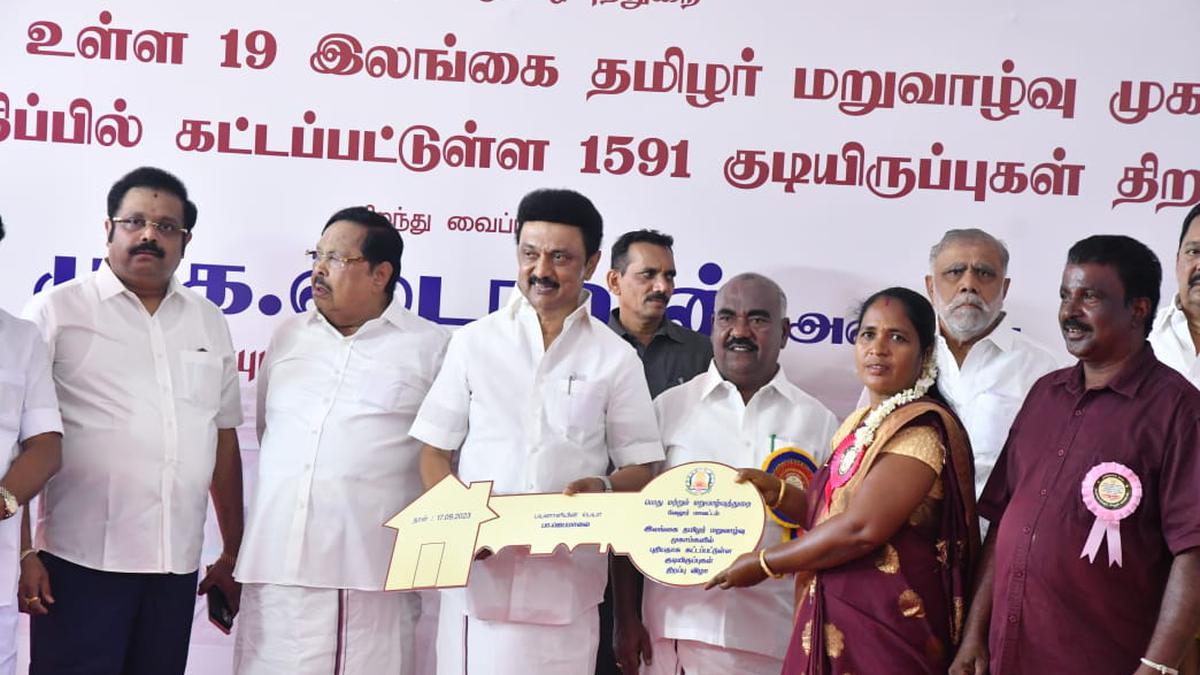
Tamil Nadu CM Stalin inaugurates distribution of free houses to Sri Lankan Tamils
The Hindu
Under the free housing scheme for Sri Lankan Tamils, 7,469 houses will be built at a cost of ₹342 crore by the District Rural Development Agency (DRDA) in phases
Chief Minister M.K. Stalin on September 17 virtually inaugurated the distribution of free houses to 1,591 Sri Lankan Tamils in the State in the first phase of the free housing scheme at a function the Sri Lankan Rehabilitation Camp in Melmanavoor village in Vellore.
Accompanied by senior ministers including Duraimurugan and I. Periyasamy, Ministers for Water Resources and Rural Development respectively, Mr. Stalin gave keys of the new houses to five beneficiaries at the rehabilitation camp in Vellore on Sunday as a mark of the event.
He also spoke to beneficiaries including one Sri Lankan Tamil from Salem district through videoconferencing, inquiring about her experience in moving into a new free house provided by the State government. “Now, you [beneficiaries] have got your new house. However, you all should take care of your new house well. That is important,” he told her.
Beneficiaries from 19 rehabilitation camps in 13 districts were visibly happy when they shared their experiences virtually to Mr. Stalin on how they spent many sleepless nights under damaged roofed-houses all these years and how they are happy that they are moving into well-lit concrete-roofed houses. During his interaction with the beneficiaries, Mr. Stalin also asked about their family, especially children, what they study and how many years they stay in the camp.
At present, 19,498 Sri Lankan Tamil families are residing at 104 rehabilitation camps in 29 districts in the State. Under the free housing scheme for Sri Lankan Tamils, 7,469 houses will be built at a cost of ₹342 crore by the District Rural Development Agency (DRDA) in phases.
In the first phase of the scheme, 3,510 houses at a cost of ₹176.02 crore were built. The first phase of the scheme was launched by Mr. Stalin at a function in Vellore in November 2021. The beneficiaries are residents in 35 camps, covering 20 districts in the State.
Of 3,510 houses in the first phase, 1,591 houses that were built at a cost ₹79.70 crore and were handed over to beneficiaries in 19 camps of 13 districts on Sunday. Among the beneficiaries in the first phase on Sunday, Erode topped with 420 houses (₹21 crore), followed by Vellore (220 houses; ₹11 crore) and Salem (109 houses; ₹13.22 crore).













